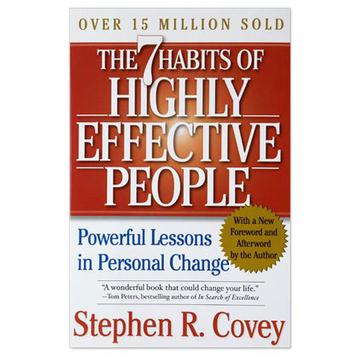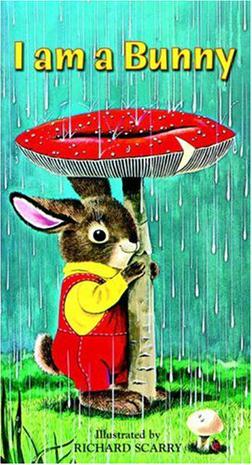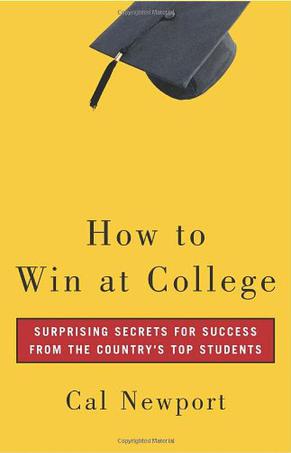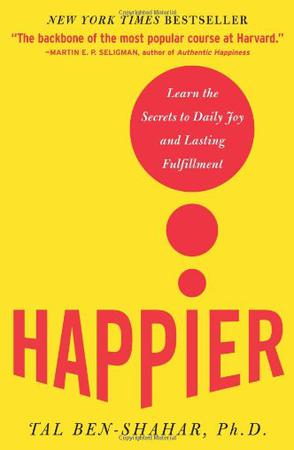-

The 7 Habits of Highly Effective People
In "The 7 Habits of Highly Effective People, " author Stephen R. Covey presents a holistic, integrated, principle-centered approach for solving personal and professional problems. With penetrating insights and pointed anecdotes, Covey reveals a step-by-step pathway for living with fairness, integrity, service, and human dignity -- principles that give us the security to adapt to change and the wisdom and power to take advantage of the opportunities that change creates. -

I Am a Bunny
I am a bunny. My name is Nicholas. I live in a hollow tree. This classic Golden Book, illustrated by Richard Scarry, celebrates its 50th anniversary with the story of Nicholas, a bunny clad in red overalls. In the spring, he picks flowers, and in the summer, watches the frogs in the pond. In the fall, he sees the animals getting ready for winter. And when winter comes, he watches the snow falling from the sky...then curls up in his hollow tree to dream about Spring. No child's library is complete without this gentle story of the seasons. -

Fifth Business
Fifth Business is a 1970 novel by Canadian novelist, playwright, critic, journalist, and professor Robertson Davies. Fifth Business is perhaps Davies' best-known novel, and many considered it his finest. It is the first installment of the Deptford Trilogy and is a story of the life of the narrator, Dunstan Ramsay. Ramsay's avid interest in hagiology and his guilty connection to Mary Dempster provide most of the impetus and background for this novel. He spends much of the book struggling with his image of Mary Dempster as a fool-saint and dealing with issues of guilt that spawned from an accident in which he was involved as a child. Davies employs many different techniques in the writing of Fifth Business. He discusses many themes in the novel, perhaps the most important being the difference between materialism and spirituality. By spirituality, Davies discusses how religion is not necessarily integral to the idea — demonstrated by the corrupt Reverend Leadbeater who reduces the Bible to mere economic terms. Davies, being an avid follower of Carl Jung's ideas, also employs them in Fifth Business. Characters are clear examples of Jungian archetypes and events are demonstrative of Jung's idea of synchronicity. The entire story is told in the form of a letter written by Ramsay on the occasion of his retirement as master at Colborne College and addressed to the school Headmaster. Ramsay's life bears many similarities to Davies', and so one may find Fifth Business to be semi-autobiographical in nature. Davies projected his life experiences into many of his works and so one may find it no surprise that he chose to do so again in Fifth Business. Davies thought of it as "autobiographical, but not as young men do it; it will be rather as Dickens wrote David Copperfield, a fictional reworking of some things experienced and much re-arranged." Davies allows us to peer through a window into his childhood in Thamesville, Ontario and through his young life into higher education and beyond through the character of Ramsay and throughout the Deptford trilogy. Davies provides us, in Fifth Business, with an autobiography which is "not a sweating account of the first time he backed a girl into a corner", but an account of his spirit, his memories, and his deeper life experiences. First published by Macmillan of Canada in 1970, Fifth Business was selected 40th on the American Modern Library's "reader's list" of the 100 best novels of the 20th century. -

Knowledge And Decisions
With a new preface by the author, this reissue of Thomas Sowell's classic study of decision making updates his seminal work in the context of The Vision of the Anointed . Sowell, one of America's most celebrated public intellectuals, describes in concrete detail how knowledge is shared and disseminated throughout modern society. He warns that society suffers from an ever-widening gap between firsthand knowledge and decision making -- a gap that threatens our very freedom because actual knowledge gets replaced by assumptions based on an abstract and elitist social vision of what ought to be. Knowledge and Decisions , a winner of the 1980 Law and Economics Center Prize, was heralded as a "landmark work" and selected for this prize "because of its cogent contribution to our understanding of the differences between the market process and the process of government." In announcing the award, the center acclaimed Sowell, whose "contribution to our understanding of the process of regulation alone would make the book important, but in reemphasizing the diversity and efficiency that the market makes possible, [his] work goes deeper and becomes even more significant." "In a wholly original manner [Sowell] succeeds in translating abstract and theoretical argument into a highly concrete and realistic discussion of the central problems of contemporary economic policy." --F. A. Hayek "This is a brilliant book. Sowell illuminates how every society operates. In the process he also shows how the performance of our own society can be improved." --Milton Friedman -

How to Win at College
The only guide to getting ahead once you’ve gotten in—proven strategies for making the most of your college years, based on winning secrets from the country's most successful students What does it take to be a standout student? How can you make the most of your college years—graduate with honors, choose exciting activities, build a head-turning resume, and gain access to the best post-college opportunities? Based on interviews with star students at universities nationwide, from Harvard to the University of Arizona, How to Win at College presents seventy-five simple rules that will rocket you to the top of the class. These college-tested—and often surprising—strategies include: • Don’t do all your reading • Drop classes every term • Become a club president • Care about your grades, Ignore your GPA • Never pull an all-nighter • Take three days to write a paper • Always be working on a “grand project” • Do one thing better than anyone else you know Proving that success has little to do with being a genius workaholic, and everything to do with playing the game, How to Win at College is the must-have guide for making the most of these four important years—and getting an edge on life after graduation. -

Happier
Can You Learn to Be Happy? YES . . . according to the teacher of Harvard University’s most popular and life-changing course. One out of every five Harvard students has lined up to hear Tal Ben-Shahar’s insightful and inspiring lectures on that ever-elusive state: HAPPINESS. HOW? Grounded in the revolutionary “positive psychology” movement, Ben-Shahar ingeniously combines scientific studies, scholarly research, self-help advice, and spiritual enlightenment. He weaves them together into a set of principles that you can apply to your daily life. Once you open your heart and mind to Happier ’s thoughts, you will feel more fulfilled, more connected . . . and, yes, HAPPIER. “Dr. Ben-Shahar, one of the most popular teachers in Harvard’s recent history, has written a personal, informed, and highly enjoyable primer on how to become happier. It would be wise to take his advice.” --Ellen J. Langer, author of Mindfulness and On Becoming an Artist “This fine book shimmers with a rare brand of good sense that is imbedded in scientific knowledge about how to increase happiness. It is easy to see how this is the backbone of the most popular course at Harvard today." --Martin E. P. Seligman, author of Authentic Happiness